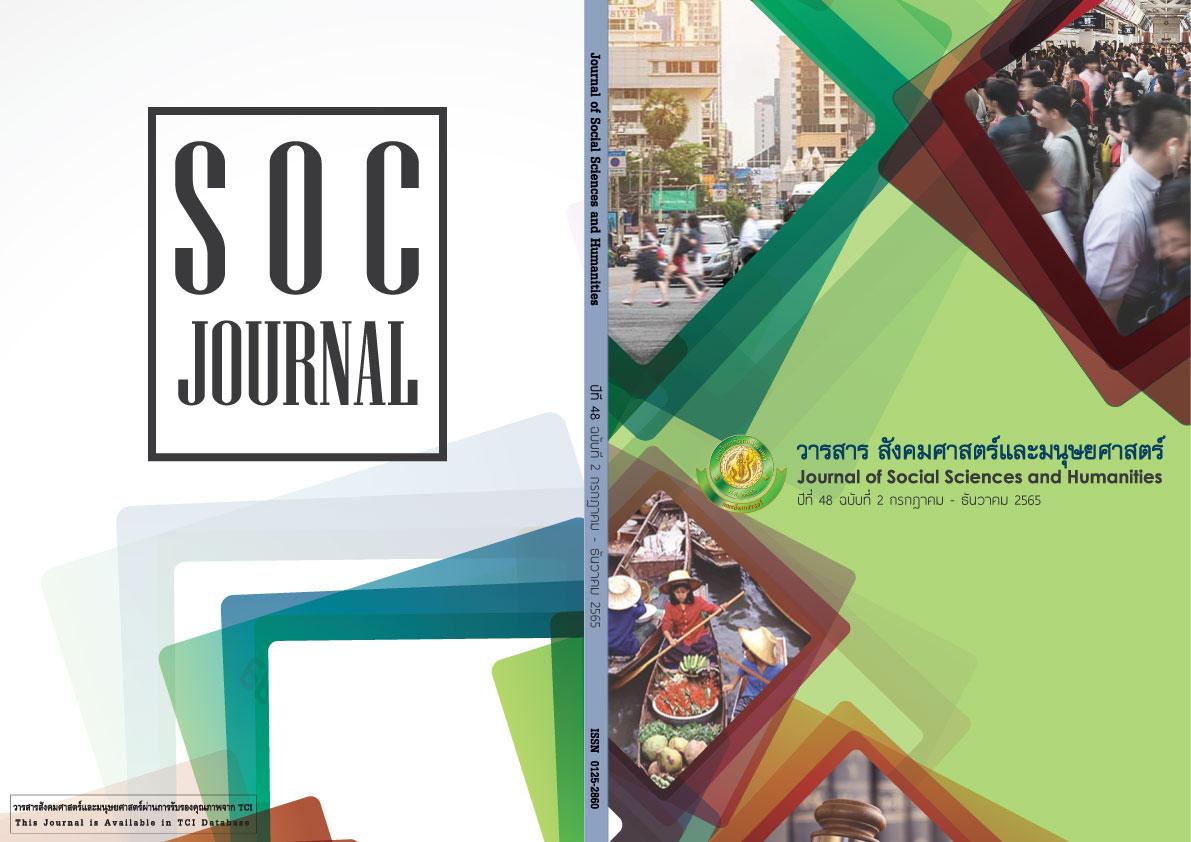Policy Discourse Techniques of Interpretation and Criticism to Create Theoretical Arguments
Main Article Content
Abstract
The study of policy discourse is prevalent in the European Union, the United States, Russia, Singapore, China, and India. It covers foreign policy, education, climate change, and trade or even the relationship between poverty and education. The effectiveness of the study of policy discourses can generate new understandings under human-made social phenomena through language, text, symbols and dialogue. This makes the analysis reflect the view of the lack of potential of the policy and raise awareness of the influence groups or policy stakeholders, especially the minority marginalized or minority. Policy discourse analysis, thus, plays a role as a tool of interpretation and criticism, enabling it to produce a new set of knowledge that is weighted enough to argue against biased theories. This article therefore presents techniques for discourse analysis of policies and procedures. including case studies of policy discourses, such as education issues, a framework for analyzing, and using data for analyzing policy discourses in the 21st century.
Article Details

This work is licensed under a Creative Commons Attribution-NonCommercial-NoDerivatives 4.0 International License.
References
Aistleitner, M. and Puehringer, S. (2021). The Trade (Policy) Discourse in Top Economics Journals. New Political Economy, 26(5), 748-764.
Allan, E. J. (2008). Policy Discourses, Gender, and Education: Constructing Women's Status. Routledge.
Allan, E. J. and Tolbert, A. R. (2019). Advancing Social Justice with Policy Discourse Analysis. In Strunk, K. K. and Locke, L. A. (eds). Research Methods for Social Justice and Equity in Education. (pp. 137-150). Palgrave Macmillan.
Bernhardsson, N. (2014). Contradicting Values in the Policy Discourse on Lifelong Learning. In Zarifis, G. K. and Gravani M. N. (eds). Challenging the ‘European Area of Lifelong Learning’ A Critical Response. (pp. 179-188). Springer.
Brown, M. and Klein, C. (2020). Whose Data? Which Rights? Whose Power? A Policy Discourse Analysis of Student Privacy Policy Document. The Journal of Higher Education, 91(7), 1149-1178.
Brugger, H. and Henry, A. D. (2021). Influence of Policy Discourse Networks on Local Energy Transitions. Environmental Innovation and Societal Transitions, 39, 141-154.
Carusi, F. T. and Niwa, T. (2020). Learning not to be Poor: The Impossible Position of Teachers in Aotearoa New Zealand Education Policy Discourse. Asia-Pacific Journal of Teacher Education, 48(1), 30-44.
Dai, L. (2019). Water Quality Knowledge and Water Policy Discourse in China. In Cai, K. G., Guang, P. and Lynch, D. C. (eds). Politics and Governance in Water Pollution Prevention in China. (pp. 7-26). Palgrave Macmillan.
Deng, W., Hsu, J.-H., Löfgren, K. and Cho, W. (2021). Who is Leading China's Family Planning Policy Discourse in Weibo? A Social Media Text Mining Analysis, Policy & Internet. 1-17.
Durnova, A. and Zittoun, P. (2013). Discursive Approaches to Public Policy. Revue Française de Science Politique, 63(3-4), 569-577.
Erdogan, B. (2017). Humanitarian Intervention and the Responsibility to Protect: Turkish Foreign Policy Discourse. Palgrave Macmillan.
Frear, M. and Mazepus, H. (2021). Security, Civilisation and Modernisation: Continuity
and Change in the Russian Foreign Policy Discourse. Europe-Asia Studies, 73(7), 1215-1235.
Hewitt, S. (2009). Discourse Analysis and Public Policy Research. Centre for Rural Economy Discussion Paper Series No. 24, October 2009. Newcastle University.
Kammerer, M. and Ingold, K. (2021). Actors and Issues in Climate Change Policy: The Maturation of a Policy Discourse in the National and International Context. Social Networks, 1-13.
Kiely, K. P. (2017). U.S. Foreign Policy Discourse and the Israel Lobby. Palgrave Macmillan.
Kuosmanen, S. (2021). Human Rights and Ideology in Foreign Policy Discourse: A Case Study of U.S. State Department Human Rights Country Reports 2000–2019. Discourse & Society, 32(4), 426-442.
Lynggaard, K. (2019). Discourse Analysis and European Union Politics. Palgrave Macmillan.
Power, S. and Taylor, C. (2021). School Exclusions in Wales: Policy Discourse and Policy Enactment. Emotional and Behavioural Difficulties, 26(1), 19-30.
Ro, J. (2020). Curriculum, Standards and Professionalisation: The Policy Discourse on Teacher Professionalism in Singapore. Teaching and Teacher Education, 91(2), 103-156.
Saqipi, B. (2019). Teacher Education Policy Discourse in the Midst of System Reorganisation and Policy Transfer: Lessons for Small and Developing Countries. International Journal of Management in Education, 13(1), 28–39.
Schlogl, L, Weiss, E. and Prainsack, B. (2021). Constructing the ‘Future of Work’: An Analysis of the Policy Discourse. New Technology. Work and Employment, 36(3), 307-326.
Schunz, S., Botselier, B. D. and Piqueres, S. L. (2021). The European Union’s Arctic Policy Discourse: Green by Omission. Environmental Politics, 30(4), 579-599.
Sheth, D. L. (2018). Minority Politics: The Shifting Terms of Policy Discourse. In deSouza, P. R. (ed). At Home with Democracy: A Theory of Indian Politics. (pp. 217-226). Palgrave Macmillan.
Song, A. M., Dressler, W. H., Satizabal, P. and Fabinyi, M. (2021). From Conversion to Conservation to Carbon: The Changing Policy Discourse on Mangrove Governance and use in the Philippines. Journal of Rural Studies, 82, 184-195.
Spratt, J. (2017). Wellbeing, Equity and Education: A Critical Analysis of Policy Discourses of Wellbeing in Schools. Springer.
Starkey, L. and Wood, B. E. (2021). A Critical Review of Learning Environment Policy Discourse in Aotearoa New Zealand. New Zealand Journal of Educational Studies, 56(1), 27-44.
Steigerwald, C. (2021). Shaping Cultural Policy Discourse in Germany: The Case of ‘Cultural Education’. International Journal of Cultural Policy, 1-18.
Swaffield, S. (1998). Contextual Meanings in Policy Discourse: A Case Study of language Use Concerning Resource Policy in the New Zealand High Country. Policy Sciences, 31, 199-224.
Swarnakar, P., Shukla, R. and Broadbent, J. (2021). Beliefs and Networks: Mapping the Indian Climate Policy Discourse Surrounding the Paris Climate Change Conference in 2015. Environmental Communication, 1-18.


